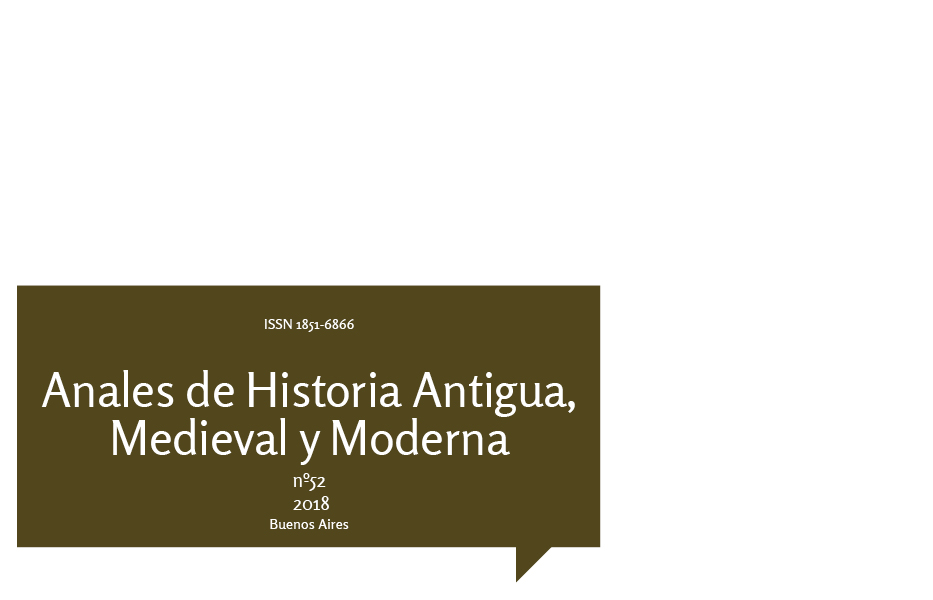Points of departure. Creation, sacred history and temporal frameworks in visigothic Spain
Keywords:
episcopal power, visigothic kingdom, creation
Abstract
This article studies the role of the bishop in the elaboration and adaptation of temporal models and origin accounts, which, based on the biblical and Patristic tradition, helped to build a Christian framework of reference and identity. The present study addresses the task of the Visigothic ecclesiastical hierarchy, with particular focus on the works of bishops Isidore of Seville, Ildefonsus of Toledo and Julian of Toledo, and examines the different strategies and procedures forged, adapted and used by them in order to teach the true doctrine and assert the unity of a kingdom that thought of itself as occupying a prominent position within Christianity. By working actively on biblical and patristic material, Visigothic bishops strived to link the present with sacred history, inscribing the gens Gothorum within a scheme of universal parameters, and presented themselves as the authorized voices to interpret and teach the revealed message.Downloads
Download data is not yet available.
Published
2018-11-01
How to Cite
Castro, D. (2018). Points of departure. Creation, sacred history and temporal frameworks in visigothic Spain. Anales De Historia Antigua, Medieval Y Moderna, 52, 45-61. https://doi.org/10.34096/ahamm.v52.6422
Issue
Section
Dossier. Obispos y obispados en la Antigüedad Tardía y Edad Media.








